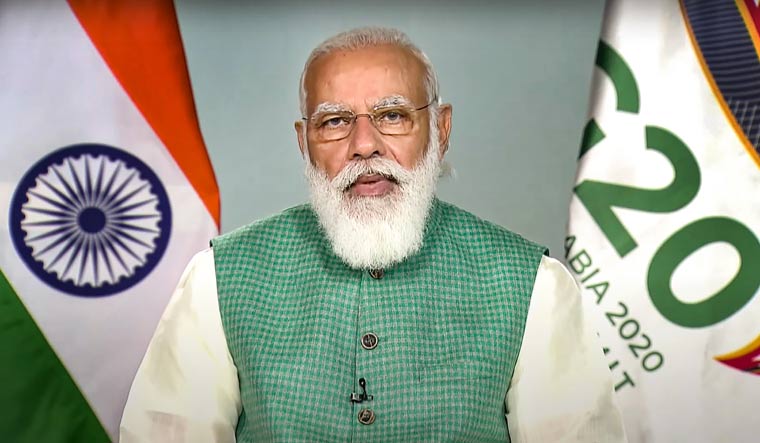
Climate change must be fought not in silos but in an integrated, comprehensive and holistic way, Prime Minister Narendra Modi said on Sunday, adding that India has adopted low-carbon and climate-resilient development practices.
“Inspired by our traditional ethos of living in harmony with the environment, and the commitment of my government, India has adopted low-carbon and climate-resilient development practices,” Modi said, addressing a G20 summit side event—’Safeguarding the Planet: The Circular Carbon Economy Approach’.
“I am glad to share that India is not only meeting our Paris Agreement targets, but also exceeding them,” Modi said.
Underlining that India has taken concrete actions in many areas, Modi said the country has popularised the LED lights which save 38 million tons of carbon dioxide emissions per year in the country. He added that smoke free kitchens have been provided to over 80 million households through the Ujjwala Scheme which is among the largest clean energy drives globally.
“There are efforts to eliminate single-use plastics; Our forest cover is Expanding ; The lion and tiger population is increasing; We aim to restore 26 million hectares of degraded land by 2030; And, we are encouraging a circular economy,” said the prime minister.
India is making next-generation infrastructure such as metro networks, water-ways and more, Modi said, and added that they will contribute to a cleaner environment in addition to convenience and efficiency.
“We will meet our goal of 175 Giga Watts of renewable energy well before the target of 2022. Now, we are taking a big step ahead by seeking to achieve 450 Giga Watts by 2030,” he said.
The prime minister said that the entire world can progress faster if there is greater support of technology and finance to the developing world.
“For humanity to prosper, every single individual must prosper. Rather than seeing labour as a factor of production alone, the focus must be on the human dignity of every worker. Such an approach would be the best guarantee for safeguarding our planet,” he said.
Modi said the CDRI has started work on increasing resilience of critical infrastructure. “Infra damage during natural disasters is a subject that has not got the attention it deserves. The poorer nations are specially impacted by this,” he said.
India is a signatory to the Paris Agreement under the United Nations Framework Convention on Climate Change. The Paris accord was adopted at the UN climate conference “COP 21” held in the French capital in 2015 with an aim to reduce hazardous greenhouse gas emissions.